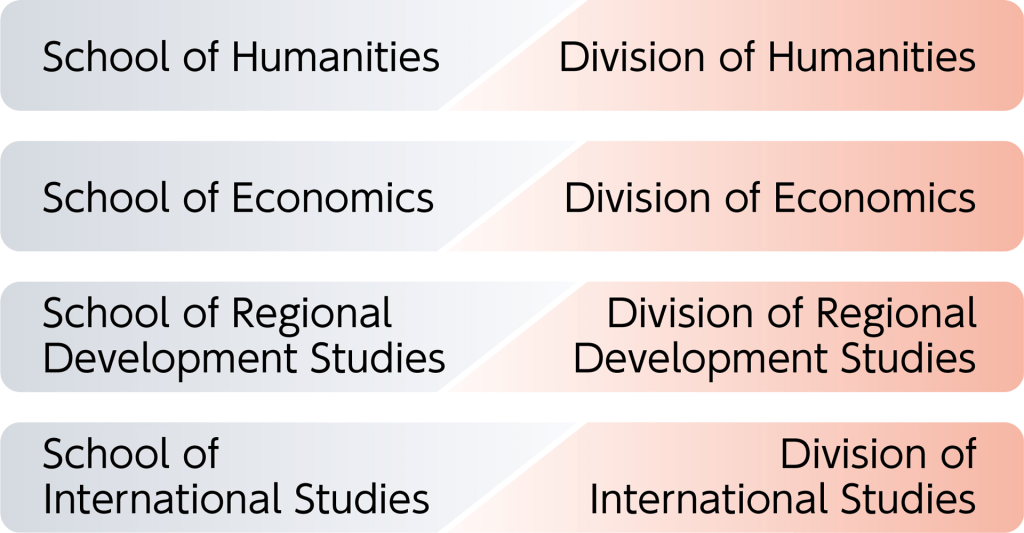Educational Support System: Four majors linked to undergraduate education
(1) Majors continued from colleges
The Graduate School of Human and Socio-Environmental Studies is affiliated with four schools within the College of Human and Social Sciences.
As a result, it offers programs that build upon the specialized fields of the undergraduate schools, providing a seamless transition for students.

(2) Adoption of the program method
The Division of Humanities has adopted a program-based system rather than a course-based system.
This enables students to choose paths that align with their diverse career goals and areas of specialization.
(3) Promoting interdisciplinarity
To develop highly specialized professionals from an interdisciplinary perspective, we provide a flexible education system that accommodates the characteristics of each major and individual research theme.
Students are encouraged to actively take courses offered by other majors.
(4) Quarter system (four semesters)
The Graduate School divides both the first and second semesters into two quarters, operating under a quarter system.
This structure allows students to earn credits in shorter academic periods.
(5) Long-term, problem-based internships
The Division of Regional Development Studies offers an “assignment-based long-term internship” in which students spend extended periods in a region, working to address local issues.
(6) Internationalization initiatives
As part of the University’s internationalization efforts, one program completion requirement is, in principle, achieving a designated score on an external English proficiency test.
We continually work to improve the English proficiency of graduate students, offering support such as examination fee subsidies and the administration of various campus-based tests.


